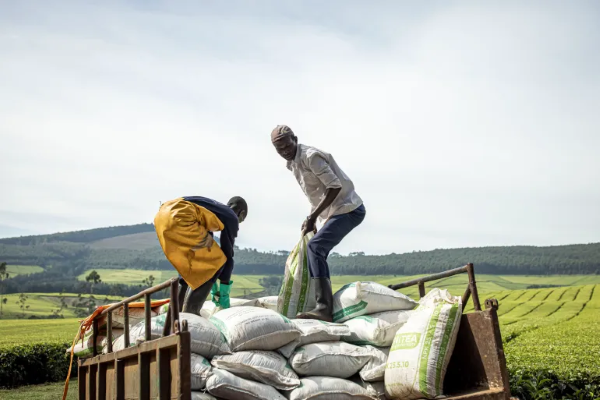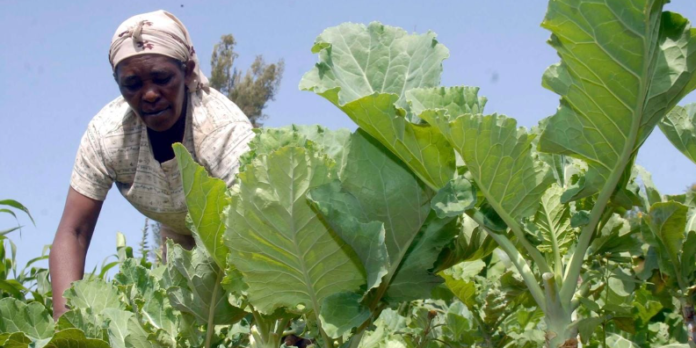The Southern African Faith Communities’ Environment Institute (SAFCEI) and the faith communities we represent are deeply concerned with the continued promotion and support of industrial farming by AGRA at the upcoming African Food Systems Forum. This forum, despite its rebranded name, continues in practice to sideline smallholder farmers, especially those that are practicing agroecology and organic farming.
The African laws and policies coming into being through the philanthropic work of big corporations are crafted to curtail the age-old traditions of sharing seeds and land ownership. This is an injustice against the smallholder farmer.
As people of faith, we have been entrusted to be custodians of the earth, through caring for nature and ensuring a just distribution of resources for all who need them. Unfortunately, the work that AGRA- promoted by the African Food Systems Forum, supported by the Bill and Melinda Gates Foundation is in contradiction to this goal. Pushing African farmers to adopt a high input – high output model based on monocultural agriculture undermines both human and environmental resilience that is critically needed for adaptation to climate change in the region. By focusing on commercial farmers who will produce primarily for the market, the approach of the Bill and Melinda Gates Foundation-supported AGRA, takes ownership of food production systems away from smallholder farmers who understand their ecological landscapes and into the hands of a few profit-driven agribusinesses. Centralizing production systems, seed, land, and profit.
Therefore, we call upon the Gates Foundation to stop funding green revolution technologies in Africa through AGRA, and promotion of genetic modified seeds, and associated pesticides and herbicides that destroy biodiversity and soil health. We ask that a holistic approach that considers agroecological farming methods and the knowledge and needs of African farmers be made central to any funding given.
AGRA’s interventions on seed are highly problematic and of the greatest concern for the following two reasons.
Firstly, AGRA’s approach strongly and exclusively supports commercial seed systems, where a few large companies control seed Research and Development (R&D), production and distribution, and seed-related national legislation to the detriment of the smallholder farmer. Particularly problematic is AGRA’s support of the fundamental restructuring of seed laws, which not only protect certified varieties but also criminalise all non-certified seeds. This approach threatens seed system diversity and thus agro-biodiversity is critical for human and ecosystem health. The system creates national dependency and insecurity for communities.

Secondly, AGRA supports Agro dealers, instead of much-needed public sector extension services. Unlike public sector extension services, Agro dealers are sponsored by government or private companies who wish to support their own technologies. Agro-dealers have no backward links to R&D that facilitate direct farmer engagement with the R&D system. Agro-dealers do not play a facilitative role, but rather offer narrow advice for specific, mostly corporate products.
AGRA and the Bill and Melinda Gates Foundation need to stop insisting on failed technologies and outdated extension methods and start listening to the farmers who are developing appropriate solutions for their contexts in harmony with nature.
The Bill and Melinda Gates Foundation invests heavily in Genetically Modified (GM) Research & Development on the continent. While this research is said to focus on drought and salt tolerance, nitrogen use efficiency, resistance to tropical pests and diseases and nutritional enhancement (biofortification), those who stand to benefit are the multi-national companies who own the patented GM traits used. Thus the genesis of GM research in these crops can be found in royalty-free donations of various patented GM traits, by several multi-national companies including Monsanto, Dupont and Pioneer Hi-bred, to experimental programmes undertaken by African scientists employed by government ministries.
Morally, the GM-based technology, which is costly, takes away from the poor and makes them dependent on the system that they have no control over and thus leave them more impoverished. Even if gene sequences and constructs are donated, the accompanying requisite GM inputs will be expensive for farmers. GM crops are highly likely to increase the costs of production for farmers and lead them into indebtedness and dependency. It is also highly likely that GM varieties will be subject to plant breeders’ rights, and that GM certified seed will be sold to farmers by local seed companies who will expect a profit or royalty payments from farmers. This scenario becomes even more problematic when applied to traditional crops, which are the common heritage of African farmers and often the last defense against hunger in poor communities.
The solution
The Bill and Melinda Gates Foundation urgently needs to stop pushing a green revolution onto Africa that imposes technologies and seeds that are controlled by companies with vested interests. Rather it should be looking at the peasants around the world who are working to build alternative food systems that are socially just and ecologically sustainable.
Such an approach includes supporting governments to implement holistic strategies to support small-holder farmers. Various agro-ecological strategies such as the intercropping, the ‘push-pull’ system and integrated pest management strategies are already showing efficacy in the field. These are being implemented in both the Americas and Africa and do not further indebted farmers, compromise their health or that of their surrounding environment.
Concerning biofortification, the real solutions to address vitamin and mineral deficiencies can be found in ecological farming systems, and traditional kitchen and home gardens, which can better contribute to healthy and diverse diets and empower people to access and produce their own healthy and varied food.
In conclusion, we believe the approach of AGRA through the Gates Foundation does not help to alleviate hunger and poverty in Africa but rather is harmful to both farmers and the environments on which African food production systems depend. Instead, the foundation’s approach supports the dominance of multinational corporations over African food production systems. As people of faith, we are called to be custodians of all creation and as such we ask that the Gates Foundation looks for solutions, such as agroecology, that do not destroy biodiversity on the African continent and focus on providing a just distribution of nutritious food for all. Such an approach requires the foundation to look for solutions not in the corporations’ science but in the knowledge and needs of African farmers.








